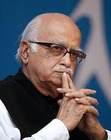L.K. Advani's Blog, page 9
June 3, 2013
OBAMA’S DILEMMA ABOUT GUANTANAMO BAY PRISON
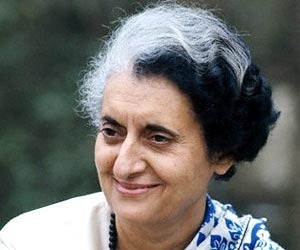 Smt. Indira Gandhi has been an eminent Prime Minister of the country under whom in 1971 the country registered a decisive victory over Pakistan, a victory which led to the vivisection of Pakistan, and the birth of a new state, Bangladesh. Talking about the balance-sheets of different Prime Ministers in a blog some time back I wrote that while the creation of Bangladesh was a big plus point in Smt. Gandhi’s record the blatant abuse of Emergency powers that took place during 1975-77 brought the country’s greatest achievement since independence, namely Democracy, to the brink of annihilation. Smt. Gandhi’s full balance-sheet thus is not very flattering.
Smt. Indira Gandhi has been an eminent Prime Minister of the country under whom in 1971 the country registered a decisive victory over Pakistan, a victory which led to the vivisection of Pakistan, and the birth of a new state, Bangladesh. Talking about the balance-sheets of different Prime Ministers in a blog some time back I wrote that while the creation of Bangladesh was a big plus point in Smt. Gandhi’s record the blatant abuse of Emergency powers that took place during 1975-77 brought the country’s greatest achievement since independence, namely Democracy, to the brink of annihilation. Smt. Gandhi’s full balance-sheet thus is not very flattering.
I am reminded of this by the latest issue of TIME (June 10, 2013) which carries as its cover story President Obama’s agonizing dilemma about what to do with U.S.A.’s notorious military prison camp at Guantanamo Bay, where the Bush Administration had detained hundreds of men captured in counter-terrorism operations since 2001.
 This TIME article written by Michael Crowley, the journal’s Deputy Chief of its Washington Bureau, opens with the statement “Barack Obama had been President for only one full day when, on Jan. 22, 2009, he acted on a central campaign promise. Arguing that the Founding Fathers would agree that America must “observe the core standards of conduct not just when it’s easy but also when it’s hard”, the President signed an Executive Order to close the Guantanamo Bay Prison and said that closing this prison would return America to the “moral high ground” it had yielded in its ruthless pursuit of Al-Qaeda during the Bush years.
This TIME article written by Michael Crowley, the journal’s Deputy Chief of its Washington Bureau, opens with the statement “Barack Obama had been President for only one full day when, on Jan. 22, 2009, he acted on a central campaign promise. Arguing that the Founding Fathers would agree that America must “observe the core standards of conduct not just when it’s easy but also when it’s hard”, the President signed an Executive Order to close the Guantanamo Bay Prison and said that closing this prison would return America to the “moral high ground” it had yielded in its ruthless pursuit of Al-Qaeda during the Bush years.
The article quotes Obama saying in May 2009, “I can tell you that the wrong answer is to pretend like this problem will go away. I refuse to pass it on to somebody else. It is my responsibility to solve the problem.” The article adds: “Four years later, with Guantanamo still open - and the site of widespread hunger strikes and other acts of disobedience by many of its 166 inmates- Obama is again trying to fulfill that responsibility.
In a May 23 address about a range of his counterterrorism policies, including drone strikes, Obama declared the start of a new push against the political obstacles that thwarted his first attempt to close the most infamous symbol of the U.S.’s post -9/11 war on terrorism. “[History] will cast a harsh judgment on this aspect of our fight against terrorism and those of us who fail to end it,” Obama said.
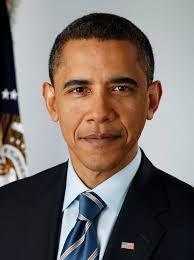 The TIME article adds:
The TIME article adds:
But Obama will be hard pressed to live up to his grand rhetoric. Opposition still runs high to the idea of releasing or bringing into U.S. prisons dozens of men widely considered dangerous terrorists even if many are not. Asked to gauge the probability that Obama can close Guantanamo before he leaves office, David Remes, a lawyer who represents 18 Guantanamo inmates replies, “Zero.”
I am not inclined to endorse unreservedly the view expressed by the counsel of the terrorists or suspected terrorists kept in Guantanamo prison. But I too hold that Obama can discharge his campaign promise only if there is adequate popular support for it. As things stand, the U.S. Government seems unlikely to do so.
In India, we have seen that it was the angry 1977 poll verdict which made Smt. Gandhi realize how wrong she was when she brazenly abused the Emergency provisions in the Constitution just to protect herself from the serious implications of a court judgement. In Obama’s case, on the other hand, against the background of 9/11, his dilemma is very real, and so quite understandable. That he has nevertheless been seriously pondering over how to resolve it without in any way weakening his country’s resolve to triumph over terrorism speaks volumes for his sincerity.
No wonder, Michael Crowley’s cover page article titled “WHY GITMO WILL NEVER CLOSE” also carries a sub-title: “President Obama wants to shut down the controversial prison but not the policies it has come to represent.”
L.K. Advani
New Delhi
04 June, 2013

June 1, 2013
कफन में जेब नहीं होती
मैं नियमित रुप से स्कूल जाने वाला विद्यार्थी रहा हूं जिसने शायद ही कभी-कभार छुट्टी ली होगी। लेकिन मुझे याद है कि रणजी ट्राफी क्रिकेट मैच देखने के लिए एक बार मैंने स्कूल से छुट्टी मारी और जहां तक मैं स्मरण कर पा रहा हूं कि उसमें या तो विजय हजारे अथवा वीनू मांकड़ खेल रहे थे।
तब से मैं क्रिकेट का शौकीन हूं। उन दिनों टेलीविजन नहीं था; अत: क्रिकेट प्रेमी कहीं भी खेले जा रहे महत्वपूर्ण मैचों का आनन्द आल इण्डिया रेडियो पर कमेंटरी सुनकर उठाया करते थे। मुझे स्मरण आता है कि कुछ वर्ष पूर्व बीबीसी ने मेरा एक इंटरव्यू किया था जिसमें मेरे गैर-राजनीतिक रूचियां जैसे फिल्में, पुस्तकें और क्रिकेट के बारे में पूछा गया था, इस दौरान मैंने उस युग के उत्कृष्ट कमेंटेटर एएफएस तल्यारखान की कमेंटरी की नकल करने का प्रयास किया था।
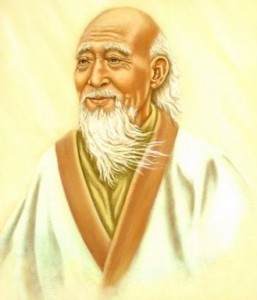 इसलिए इन दिनों क्रिकेटरों को मुखपृष्ठ की सुर्खियां बनती देख मुझे गुस्सा आता है क्योंकि यह सुर्खियां उनके द्वारा कोई रिकार्ड तोड़ने, या बल्लेबाजी अथवा गेंदबाजी में कीर्तिमान बनाने के चलते नहीं अपितु मैच फिक्सिंग, या स्पॉट-फिक्सिंग से दौलत बटोरने तथा इसी प्रक्रिया में सट्टेबाजों और जुआरियों के और अमीर बनने के कारण बन रही हैं!
इसलिए इन दिनों क्रिकेटरों को मुखपृष्ठ की सुर्खियां बनती देख मुझे गुस्सा आता है क्योंकि यह सुर्खियां उनके द्वारा कोई रिकार्ड तोड़ने, या बल्लेबाजी अथवा गेंदबाजी में कीर्तिमान बनाने के चलते नहीं अपितु मैच फिक्सिंग, या स्पॉट-फिक्सिंग से दौलत बटोरने तथा इसी प्रक्रिया में सट्टेबाजों और जुआरियों के और अमीर बनने के कारण बन रही हैं!
लाओ त्जु ईसा पूर्व छठी शताब्दी के एक महान चीनी दार्शनिक थे। उनकी सभी सीखें इस पर जोर देती हैं कि ठाठदार इच्छाओं से बढ़कर कोई बड़ी विपत्ति नहीं है। ‘वे ऑफ लाओ त्जू‘ शीर्षक वाली पुस्तक में उनको उदृत किया गया है: ”लालच से बढ़ी कोई विपदा नहीं है।”
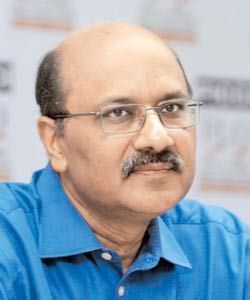 हालैण्ड के एक दार्शनिक वेडेंडिक्ट स्पिनोझा ने धनलोलुपता और लिप्सा को न केवल पाप अपितु उसे ‘पागलपन‘ ठहराया है! मैं चाहता हूं कि प्रत्येक मनुष्य को यह अहसास रहना चाहिए कि अंतिम समय में कोई कुछ अपने साथ नहीं ले जाता।
हालैण्ड के एक दार्शनिक वेडेंडिक्ट स्पिनोझा ने धनलोलुपता और लिप्सा को न केवल पाप अपितु उसे ‘पागलपन‘ ठहराया है! मैं चाहता हूं कि प्रत्येक मनुष्य को यह अहसास रहना चाहिए कि अंतिम समय में कोई कुछ अपने साथ नहीं ले जाता।
इण्डियन एक्सप्रेस में शेखर गुप्ता के ‘वॉक दि टॉक‘ साक्षात्कार सदैव पाठकों को काफी समृध्द सामग्री उपलब्ध कराते हैं। इस महीने की शुरुआत में उन्होंने कभी भारत की क्रिकेट टीम के विकेट कीपर रहे फारुख इंजीनियर से एक सजीव साक्षात्कार किया है।
इस पूर्व विकेट कीपर से किया गया साक्षात्कार पूर्ण पृष्ठ पर प्रकाशित हुआ है, जिसका बैनर शीर्षक एक पूर्व तेज गेंदबाज का यह वाक्य है: ‘यदि आप तेज गेंदबाजी से डरते हो, तो बैंकिंग जैसे अन्य व्यवसाय में जाओ।‘

आज की भारतीय क्रिकेट में, वीरेन्द्र सहवाग की छवि शुरुआती तेज रन लेने वालों की है; उन दिनों में इंजीनियर एकमात्र ऐसे बल्लेबाज थे जिन्होंने 46 गेंदों में एक सेंचुरी बनाई थी! समूचे साक्षात्कार में पूर्व और वर्तमान युग के क्रिकेट मैचों की तुलना करते हुए इसका भी उल्लेख हुआ कि आज कल कितने बेहतरीन बल्ले बनाए जाते हैं जबकि फारुख के समय में ”हमारा तो ब्रुक बांड चाय का डब्बा था; कोई मिडिल था ही नहीं; आपको ही इसे तेल लगाना पड़ता था और यही सब वो जमाना था!”
निस्संदेह सर्वाधिक बड़ी बात तुलनात्मक रुप से यह उभर कर सामने आती है कि उन वर्षों में कभी किसी टेस्ट क्रिकेट खिलाड़ी पर ऐसे सवाल नहीं उठे कि उसने अपनी प्रतिभा का दुरूपयोग कर पैसा कमाया। वास्तव में, फारुख इंजीनियर का टीवी दर्शकों से परिचय कराते समय शेखर गुप्ता ने बताया: ”क्या आप जानते हैं कि एम.एस. धोनी से काफी पहले एक ऐसा भारतीय विकेट कीपर था जिसके बालों का स्टाइल और जिसके जोरदार तरीके पूरे भारत को दीवाना बना देते थे?”
इंजीनियर के बालों के स्टाइल का संदर्भ देते हुए शेखर गुप्ता ने कहा: ”आप अपने स्टाइल से प्रसिध्द हो गए थे। आप एक बड़े ब्रिलक्रीम मॉडल थे।”
आज कल के क्रिकेटरों की कमाई की पृष्ठभूमि में यह ब्रिलक्रीम का संदर्भ समूचे साक्षात्कार में बार-बार आया। शेखर की टिप्पणी थी: ”लोग नहीं जानते होंगे कि ब्रिलक्रीम के बारे में।” फारुख का उत्तर था:
”ब्रिलक्रीम वास्तव में एक चीज थी, यदि ब्रिलक्रीम ने आपको ‘एप्रोच‘ किया तो आपकी जिंदगी बन गई। तब आप अच्छे दिखने वाले सुअर हो या कुछ भी। और ब्रिलकी्रम ने वास्तव में मुझे 500 पौंड से ज्यादा किए बशर्ते मैं बगैर ‘कैप‘ के बल्लेबाजी करुं!”
साक्षात्कार में आगे चलकर वह स्मरण करते हैं कि कैसे आस्ट्रेलियाई और अन्य विदेशी हमें ‘ब्लडी इण्डियन‘ कहकर पुकारा करते थे। फारुख कहते हैं: इससे मुझे नाराजगी होती थी, इससे मैं दु:खी होता था क्योंकि मैं अपने भारतीय होने पर सोत्साहपूर्वक गर्व करता था। और अभी आइपीएल के सब पैसे हैं, वे सब यहां पैसा कमाने आए हैं।” साक्षात्कार के अंतिम पैराग्राफ निम्न हैं:
शेखर गुप्ता: फारुख यदि टीम ने क्रिकेट के खेल में शानदार मोड़ लाया था तो मैं देख सकता हूं कि यह कैसे सम्भव हुआ। यह आप जैसे लोगों की खेल में वह भावना और आनन्द था।
फारूख इंजीनियर% खेल में कोई पैंसे के बगैर।
शेखर गुप्ता: बिलक्रीम से मिले कुछ हजार पौण्ड के सिवाय, और वह भी कपिल देव द्वारा पॉलमोलिव के लिए किए जाने से काफी पहले।
फारुख इंजीनियर: ब्रिलक्रीम अंतराष्ट्रीय स्तर पर थी। पॉलमोलिव स्थानीय। जब आप ब्रिलक्रीम मॉडल हो तो यह ऐसा था कि आप ‘वोग‘ पत्रिका के मुखपृष्ठ पर छप रहे हों जो पूरी दुनिया में जाती है। इसलिए यह ब्रिलक्रीम जैसी थी।
शेखर गुप्ता: अनेक दशकों से भारतीय क्रिकेट में एक महान अंतराष्ट्रीय नागरिक आप जैसा है ही नहीं। अत: एक बार फिर से इस बातचीत की क्या विशेषता है।
फारुख इंजीनियर: पूर्णतया आनन्द।
देश में राजनीतिक भ्रष्टाचार के बारे में सन 2008 के राष्ट्रमंडल खेलों से सुना जा रहा है जिसके चलते हमारे राष्ट्र की काफी बदनामी हुई है। परन्तु वर्तमान के दौर में अलग श्रेणी के नायकों के शामिल होने से यही तथ्य उभरता है कि इस सभी गिरावट की जड़ में पैसा मुख्य है।
किसी ने सही ही कहा है: धन रखना बहुत अच्छा है ; यह एक मूल्यवान चाकर हो सकता है। लेकिन धन आपको रखे तो यह ऐसा है जैसे कोई शैतान आपको पाल रहा है, और यह सर्वाधिक स्वार्थी और खराब किस्म का शैतान है!
लालकृष्ण आडवाणी
नई दिल्ली
26 मई, 2013

May 25, 2013
ONE’S LAST SHIRT HAS NO POCKET
As a schoolboy I was a regular student who rarely missed classes. But I do remember having once bunked school just to watch a Ranji Trophy cricket match in which to the best of my recollection either Vijay Hazare or Vinoo Mankad was playing.
I have been fond of cricket since then. Those days there was no television; so, cricket lovers could enjoy important matches played elsewhere only by listening to the commentary on AIR. I recall a BBC interview with me some years back in which the interviewer was discussing with me my non-political interests like films, books and cricket, in which at one point I tried to imitate a cricket commentary by the outstanding commentator of that era, AFS Talyarkhan.
 I find it extremely disgusting, therefore, to find that cricketers are making front page headlines these days not because of the records they break, either in their batting or bowling performance, but simply because of the wealth they have been amassing due to their match-fixing, or spot-fixing, and in the process making the bookies and gamblers also grow richer !
I find it extremely disgusting, therefore, to find that cricketers are making front page headlines these days not because of the records they break, either in their batting or bowling performance, but simply because of the wealth they have been amassing due to their match-fixing, or spot-fixing, and in the process making the bookies and gamblers also grow richer !
Lao Tzu was an outstanding Chinese philosopher of the sixth century B.C. All his wise sayings emphasise that there is no greater calamity than lavish desires. The book “Way of Lao Tzu” quotes him saying “There is no greater disaster than greed”.
 Benedict Spinoza, a Dutch philosopher has listed avarice and lust as not just vices, but as ‘madness’! I wish every mortal realises that one’s last shirt has no pocket.
Benedict Spinoza, a Dutch philosopher has listed avarice and lust as not just vices, but as ‘madness’! I wish every mortal realises that one’s last shirt has no pocket.
Shekhar Gupta’s ‘Walk the Talk’ interviews in the Indian Express almost always provide rich reading fare to the readers. Earlier this month he had a lively interview with a one time wicket keeper of India’s cricket team, Farokh Engineer.
The full page interview with this former wicket-keeper bore a banner headline, giving a quote of the former fast bowler: If you are afraid of fast bowling, go find a different profession like banking’.

In Indian cricket today, Virendra Sehwag has the reputation of being the fastest opening run-getter; in those early years Engineer was the only batsman who scored a century in 46 balls ! In the entire interview while contrasting the present with the past era of cricket matches there is mention of how excellently made are bats nowadays, whereas in Farokh’s time, “hamara toh Brooke Bond chai ka dabba tha; there was no middle at all; you had to really oil it and all that Woh zamana tha !”
The biggest contrast that emerges, of course, is that in earlier years there was never any question of any test cricketer earning money out of his prowess. In fact introducing Farokh Engineer, Shekhar Gupta told the TV viewers: “Did you know that long before M.S. Dhoni, there was an Indian wicket keeper whose hairstyle and whose dashing methods became the rage all over India ?
Pursuing this reference to Engineer’s hair style, Shekhar Gupta said: “You became famous with your side burns. You were a great Brylcreem model”.
It is in the context of the earnings of cricketers nowadays that this Brylcreem reference keeps recurring throughout the interview. To Shekhar’s comment: “People may not know what Brycreem is any more”, Farookh’s response was :
“Brylcreem was the thing, If you were approached by Brylcreem, you have made it in life. Then you are a good looking swine or whatever. And Brylcreem actually paid me Pounds 500 more if I batted without a cap !”
Later on in the interview, recalling how Australians and the other foreigners used to call us “bloody Indians”, Farokh says: That annoyed me; that hurt because I’m fiercely proud of being an Indian. And abhi IPL ke sab paise hain, they all come here to earn money”.
The closing paragraphs of the interview run as follows :
S.G. So if this was the Indian team that scripted the great cricket turnaround, Farokh, I can see what made it possible. It was the spirit and the joy that people like you had in the game.
F.E. With no money in the game.
S.G. Except a few hundred pounds from Brylcreem. That’s much before Kapil Dev did Palmolive.
F.E. Brylcreem was international, Palmolive was very local. When you’re a Brylcreem model, it was like appearing on the Vogue magazine cover, it went all over the world. So it was quite a thing to be a Brylcreem endorsee.
S.G. For so many decades, Farokh, Indian cricket did not have a greater international citizen to endorse it than you. So once again, what a privilege to have this conversation.
F.E. Absolute pleasure.
The political scams the country has been hearing about since the Commonwealth Games of 2008 have earned for the nation a lot of disrepute. But this last phase involving a different breed of icons only point out what is at the root of all this degradation; it is MONEY.
It has been very rightly said: To possess money is very well; it may be a very valuable servant. But to be possessed by money is to be possessed by a devil, and one of the meanest and worst kind of devils !
L.K. Advani
New Delhi
26 May, 2013

इंटरनेट क्रांति की चुनौतियां

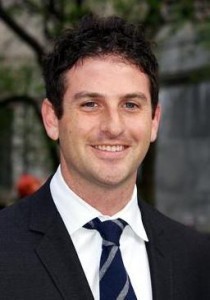 गत् सप्ताह एक मित्र ने मुझे ‘इंटरनेट‘ (अंतरताना) से सम्बन्धित एक उत्कृष्ट पुस्तक भेजी, सत्य यह है कि हाल ही के वर्षों में जिन उत्तम पुस्तकों को पढ़ने का मौका मिला, यह उनमें से एक है। पुस्तक का शीर्षक है ”दि न्यू डिजिटल एज”। इस पुस्तक पर की गई टिप्पणियों में ब्रिटेन के पूर्व प्रधानमंत्री टोनी ब्लेयर की टिप्पणी भी समाहित है, जिसमें वह कहते हैं:
गत् सप्ताह एक मित्र ने मुझे ‘इंटरनेट‘ (अंतरताना) से सम्बन्धित एक उत्कृष्ट पुस्तक भेजी, सत्य यह है कि हाल ही के वर्षों में जिन उत्तम पुस्तकों को पढ़ने का मौका मिला, यह उनमें से एक है। पुस्तक का शीर्षक है ”दि न्यू डिजिटल एज”। इस पुस्तक पर की गई टिप्पणियों में ब्रिटेन के पूर्व प्रधानमंत्री टोनी ब्लेयर की टिप्पणी भी समाहित है, जिसमें वह कहते हैं:
यह पुस्तक इंटरनेट द्वारा सृजित की जा रही नई दुनिया की प्रकृति और इसकी चुनौतियों-दोनों को परिभाषित करती है। यह जन्म ले रही एक प्रौद्योगिक क्रांति का वर्णन करती है। हम इसे कैसे माप पाते हैं, यह देशों, समुदायों और नागरिकों के लिए चुनौती है। एरिक चमस्मिट (Eric schmidt½ और जारेड कोहेन (Jared Cohen½ - इन दोनों से ज्यादा और कौन इसके तात्पर्य को अच्छी तरह से जान सकता है।
इरिक सचमिड्ट, गूगल के इग्जेक्यटिव चेयरमैन हैं और जारेड कोहेन इस पुस्तक के सहयोगी लेखक होने के साथ-साथ गूगल आईडियाज़ के निदेशक हैं।
 लेखक द्वारा लिखी गई प्रस्तावना का शुरुआती वाक्य है: ”इंटरनेट उन कुछ चीजों में से है जिसे मनुष्यों ने बनाया लेकिन वे इसे वास्तव में समझते नहीं हैं।”
लेखक द्वारा लिखी गई प्रस्तावना का शुरुआती वाक्य है: ”इंटरनेट उन कुछ चीजों में से है जिसे मनुष्यों ने बनाया लेकिन वे इसे वास्तव में समझते नहीं हैं।”
प्रस्तावना के अंतिम पैराग्राफ में लिखा है:
”यह पुस्तक गजेट्स, स्माल फोन एप्पस या आर्टिफिशियल इंटेलीजेंस के बारे में नहीं है, यद्यपि इन प्रत्येक विषयों के बारे में चर्चा की जाएगी….
सर्वाधिक , यह पुस्तक नए डिजिटल युग में मार्गदर्शक मानवीय हाथ के महत्व के बारे में है। संचार प्रौद्योगिकी जिन सभी संभावनाओं का प्रतिनिधित्व करती है, उनका अच्छे या बुरे उपयोग का सारा दारोमदार लोगों पर निर्भर करता है। भूल जाइए उन सभी बातों को जो मशीनों के प्रभावी होने से उठती हैं। हमारे लिए मुख्य है कि भविष्य में क्या होगा।”
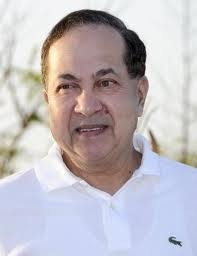 मार्च, 2011 में चेन्नई से प्रकाशित हिन्दू ने भारत की विदेश नीति और घरेलू मामलों से सम्बंधित रिपोर्टों की श्रृंखला प्रकाशित करना शुरु किया था, जिनके चलते भारतीय पाठकों को विकीलीक्स नाम के संगठन से घनिष्ठ परिचय हुआ। 15 मार्च, 2011 को हिन्दू के तत्कालीन मुख्य सम्पादक एन. राम ने लिखा:
मार्च, 2011 में चेन्नई से प्रकाशित हिन्दू ने भारत की विदेश नीति और घरेलू मामलों से सम्बंधित रिपोर्टों की श्रृंखला प्रकाशित करना शुरु किया था, जिनके चलते भारतीय पाठकों को विकीलीक्स नाम के संगठन से घनिष्ठ परिचय हुआ। 15 मार्च, 2011 को हिन्दू के तत्कालीन मुख्य सम्पादक एन. राम ने लिखा:
आज से हिन्दू अपने पाठकों को लिए ऐसी श्रृंखला शुरु कर रहा है जो इसके पाठकों को भारत की विदेश नीति और घरेलू मामलों, कूटनीति, राजनीतिक, आर्थिक, सामाजिक, सांस्कृतिक और बौध्दिक पक्ष की अप्रत्याशित अंतरंग जानकारी देगी जिसे अमेरिकी राजनायिकों ने वाशिंगटन डीसी में विदेश विभाग को भेजे गए केबलों में प्राप्त, प्रत्यक्षदर्शी, जुटाई गई, परिभाषित, टिप्पणियों सहित संजोया गया था।
विषयों, मुद्दों और इण्डिया केबल्स में वर्णित व्यक्तियों का दायरा अद्भुत है। जबकि दक्ष राजनयिकों की दृष्टि बहुधा सदैव अपने लक्ष्य पर थी-विकसित होते भारत-अमेरिकी सामरिक रिश्ते और इसमें सहायक या रोड़ा अटकाने वाली हर चीज-इस दायरे में शामिल है। भारत के अपने पड़ोसियों से रिश्ते, रुस, यूरोपियन यूनियन, ईस्ट एशिया, इस्राइल, फिलस्तीन, इरान और समूचा पश्चिम एशिया, अफ्रीका, क्यूबा और संयुक्त राष्ट्र। गुप्तचर सूचनाओं का आदान-प्रदान, निर्यात नियंत्रण, मानवाधिकार, भारतीय नौकरशाही, पर्यावरण, अफगान-पाक और बहुत कुछ। 26/11 पर विशेष फोकस है, कश्मीर, पाकिस्तान श्रीलंका, नेपाल, बंगलादेश और म्यनमार के प्रति भारत की नीति और भारतीय नीति किधर जा रही है। सभी दलों के राजनीतिक, कूटनीतिज्ञ, और सभी अधिकारी, जासूस, व्यवसायी, पत्रकार, व्यस्ततम लोग, बड़े-बड़े और छोटे-छोटे लोग विकीलीक्स के भारत सम्बन्धी केबल्स में हैं-जो अमेरिकी दूतावास और कान्सुलेट के 5100 केबल्स हैं जो भारत के संदर्भ में प्रासंगिक हैं (सभी भारत से नहीं भेजे गए हैं) और विस्मयकारी 6 मिलियन शब्दों में फैले हैं।”
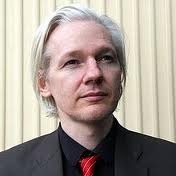 समाचारपत्र के बहुत से पाठकों की भांति मैं भी विकीलीक्स के मुख्य सम्पादक द्वारा गुप्त दस्तावेजों में सेंध लगाकर रहस्योद्धाटित की गई जानकारियों से काफी प्रभावित हुआ। इसलिए, ब्रिटेन में एसांजे के नजरबंद किए जाने से मैं काफी दु:खी हुआ।
समाचारपत्र के बहुत से पाठकों की भांति मैं भी विकीलीक्स के मुख्य सम्पादक द्वारा गुप्त दस्तावेजों में सेंध लगाकर रहस्योद्धाटित की गई जानकारियों से काफी प्रभावित हुआ। इसलिए, ब्रिटेन में एसांजे के नजरबंद किए जाने से मैं काफी दु:खी हुआ।
चमस्मिट और कोहेन ने नजरबंदी के दौरान एसांजे से साक्षात्कार किया:
पुस्तक में लिखा है:
साक्षात्कार के दौरान, एसांजे ने इस विषय पर अपने दो मूल तर्कों को साझा किया। जोकि सम्बंधित हैं: पहला, हमारी मानव सभ्यता हमारे सम्पूर्ण बौध्दिक जीवन इतिहास (रिकार्ड) पर बनी है; अत: रिकार्ड जितना सम्भव हो उतना बड़ा होना चाहिए जो हमारे अपने समय को आकार दे सके तथा भावी पीढ़ियों को सूचित कर सके। दूसरा, क्योंकि विभिन्न पात्र सदैव अपने इतिहास को आत्मसम्मान की खातिर नष्ट करने या संवारने का प्रयास करते हैं, तो अत: सबका जहां तक संभव हो सक,े जो सत्य चाहते हैं और उसे महत्व देते हैं को रिकार्ड को नकारने से बचाने, और फिर इस रिकार्ड को जहां तक सम्भव हो सभी लोगों को सभी जगह सुलभ और शोधयोग्य बनाना चाहिए।
एसांजे के इस अवतार ने स्वाभाविक रुप से मुझे सत्तर के दशक में हमारे आपातकाल के प्रकरण का स्मरण करा दिया जब एक लाख से ज्यादा विपक्षी कार्यकर्ताओं को राष्ट्रीय सुरक्षा के लिए खतरा मानकर जेलों में ठूंस दिया गया, इस पृष्ठभूमि में, इसलिए मैं इस मत का समर्थन करता हूं कि इंटरनेट इत्यादि पर सभी नियंत्रण अवांछनीय हैं और इसलिए एसांजे के उपरोक्त तर्कों से सहमत हूं तथा उनके विचार को समर्थन देता हूं कि व्यापक पारदर्शिता एक ज्यादा न्यायसंगत, सुरक्षित और स्वतंत्र विश्व बनाएगी।
मैं अवश्य ही यह मानता हूं कि इस पुस्तक ने मेरे लिए एक चेतावनी दी है कि इंटरनेट और अन्य आधुनिक संचार उपकरणों द्वारा लाई गई क्रांति ने राष्ट्रों और वैयक्तिक नागरिकों की सुरक्षा के लिए बहुत गंभीर परिणाम पैदा कर दिए हैं।
जब मैंने ‘चेतावनी‘ शब्द का प्रयोग जोर देकर किया कि कैसे यह पुस्तक इंटरनेट जैसे आधुनिक संचार उपकरणों के प्रति मेरे सहज मोह को प्रभावित करती है, तो मुख्य रूप से मेरे दिमाग में इस पुस्तक का पांचवां अध्याय है, जिसका शीर्षक है ”दि फ्यूचर ऑफ टेरोरिज्म”। अध्याय की शुरूआत में ही लिखा है:
”जैसाकि हमने स्पष्ट किया कि तकनीक एक समान अवसर हेतु सक्षम बनाने, लोगों को अपने लक्ष्यों के लिए प्रयोग करने हेतु शक्तिशाली औजार प्रदान करती है, कभी अद्भुत रूप से रचनात्मक लक्ष्यों लेकिन कभी-कभी अकल्पनीय विनाशकारी लक्ष्यों के लिए। अपरिहार्य सत्य यह है कि कनेक्टिविटी आतंकवादियों और हिंसक चरमपंथियों को भी फायदा देती है; जैसे यह फैलती है वैसे ही जोखिम भी। भविष्यगत आतंकवादी गतिविधियों में भर्ती से लेकर क्रियान्वयन जैसे भौतिक और वास्तविक पहलू शामिल रहेंगे। आतंकवादी समूह बम या अन्य माध्यमों से वार्षिक तौर पर हजारों लोगों को मारते रहेंगे। यह व्यापक लोगों, उन देशों के लिए बहुत बुरा समाचार है जो पहले से ही भौतिक विश्व में अपनी मातृभूमि को बचाने में काफी मुश्किलों का सामना कर रहे हैं और कम्पनियां निरंतर उनकी मार के दायरे में आएंगी। और निस्संदेह यह भयावह संभावना बनी रहेगी कि इनमें से कोई एक समूह परमाणु, रसायनिक या जैविक हथियार से युक्त हो जाए।
इस पुस्तक के लेखकद्वय ने परिचय में उल्लेख किया है कि इस पुस्तक का विचार उन्हें सन् 2009 में बगदाद में मिलने पर सूझा। दोनों इराक में इस महत्वपूर्ण सवाल से जूझ रहे थे कि एक समाज को फिर से बनाने में कैसे तकनीक का उपयोग किया जा सकता है।
आतंकवाद सम्बन्धी अध्याय में वे कहते हैं ”सन् 2009 में जब वे यात्रा कर रहे थे तब उन्हें यह ख्याल आया कि एक ”आतंकवादी बनना कितना सरल” हो गया है। वे लिखते हैं कि आई ई डी (उन्नत विस्फोटक उपकरण) पहले महंगे थे। सन् 2009 तक वे काफी सस्ते हो गए और ”एक बम जिसका ट्रीगर मोबाईल फोन सेट के कम्पायमान (वाईब्रेट) से दूर से ही नम्बर मिलाकर विस्फोट किया जा सकता है।”
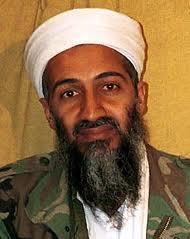 एबटाबाद में ओसामा बिन लादेन प्रकरण का संदर्भ देते हुए पुस्तक कहती है:
एबटाबाद में ओसामा बिन लादेन प्रकरण का संदर्भ देते हुए पुस्तक कहती है:
”भविष्य में आतंकवादी पाएंगे कि तकनीक आवश्यक है लेकिन ज्यादा जोखिम वाली है। सन् 2011 में ओसामा बिन लादेन की मौत प्रभावी रूप से आधुनिक प्रौद्योगिकी पर्यावरण से अलग-थलग रहकर गुफा के ठिकाने वाले आतंकवादी युग को समाप्त करती है। कम से कम पांच वर्ष तक बिन लादेन पाकिस्तान के एबटाबाद के अपने ठिकाने में इंटरनेट या मोबाइल फोन के बगैर छुपा रहा।
और भले ही ‘ऑफ लाइन‘ रहकर बिन लादेन पकड़े जाने से बचा रहा, लेकिन वह फलैश ड्राइव्स, हार्ड ड्राइव्स और डीवीडी का प्रयोग अपनी जानकारी तरोजाता बनाए रखने के लिए किया करता था। इन उपकरणों ने उसे अल-कायदा के दुनियाभर में चल रहे ऑपरेशनों पर नजर रखने में सबल बनाया और उसके गुर्गों को उसके तथा सर्वत्र विभिन्न आतंकी गुटों के बीच बड़ी मात्रा में डाटा प्रदान करने में सहायता की। जब तक वह आजाद रहा, इन उपकरणों पर उपलब्ध सूचनाएं सुरक्षित थीं और पहुंच से बाहर। लेकिन जब नेवी सील टीम सिक्स ने उसके घर पर धावा किया, उन्होंने उसके उपकरणों को कब्जे में लिया, और न केवल उन्हें वांछित व्यक्ति पकड़ने में सफलता मिली अपितु उन सभी के बारे में भी महत्वपूर्ण सूचनाएं मिलीं जिनके सम्पर्क में वह था।”
इसी संदर्भ में एक और उदाहरण दिया गया है कि कैसे नए उपकरणों ने एक आतंकवादी ऑपरेशन करने में सफलता प्राप्त की लेकिन अपने पीछे सन् 2008 में मुंबई पर हुए आतंकवादी हमले जिसमें दस नकाबधारी लोगों ने शहर को तीन दिन तक बंधक बना कर रखा और अनेक विदेशियों सहित 174 व्यक्ति मारे गए, को फंसाने वाला वर्णन भी छोड़ा।
”बंदूकधारी पाकिस्तान में बैठे अपने सूत्रधारों से सामंजस्य बैठाने और हमला करने हेतु, तथा बुनियादी उपभोक्ता प्रौद्योगिकी - ब्लैकबेरी, गूगल अर्थ और वीओआईपी - पर निर्भर थे, जो इस घटना का ताजा प्रसारण्ा सेटेलाइट टेलीविजन पर देख रहे थे और समाचारों की मॉनिटरिंग कर सचमुच में सामरिक निर्देश दे रहे थे। प्रौद्योगिकी ने इन हमलों को अन्य स्थिति की तुलना में ज्यादा घातक बना दिया लेकिन एक बार जब (अंतिम और एकमात्र जीवित) बंदूकधारी पकड़ा गया, उसके पास जो सूचना थी और महत्वपूर्ण यह कि उसके साथियों के छोड़े गए उपकरणों ने जांचकर्ताओं को इलेक्ट्रॉनिक जांच करते हुए पाकिस्तान में बैठे महत्वपूर्ण लोगों और स्थानों तक पहुंचाया जोकि दूसरी स्थिति में अनेक महीनों तक पता ही नहीं चलते, कभी नहीं भी।”
टेलपीस (पश्च्य लेख)
सी आई ए के पूर्व डारेक्टर जनरल मिशेल हायडेन ‘दि न्यू डिजिटल एज‘ ‘उन सभी को पढ़ने के लिए अनिवार्य मानते हैं जो डिजिटल क्रांति की गहराई को समझना चाहते हैं।‘
यह पुस्तक कहती है कि दुनियाभर के अधिकांश इंटरनेट उपयोगकर्ताओं को किसी रूप में सेंसरशिप - जिसे कोमल भाषा में ‘फिल्टरिंग‘ के नाम से जाना जाता है - का सामना करना पड़ता है। लेकिन देशों में फिल्टरिंग के तीन मॉडल प्रचलित हैं : खुले तौर पर, संकोची और राजनीतिक तथा सांस्कृतिक रूप से स्वीकार्य।
खुले तौर पर : चीन दुनिया में सूचनाओं का सर्वाधिक उत्साही फिल्टर करने वाला देश है। दुनियाभर में प्रर्याप्त लोकप्रिय समूचे प्लेटफार्म - फेसबुक, टि्वटर, टुमबलर - पर चीनी सरकार ने रोक लगाई हुई है। इसी प्रकार राजनीतिक रूप से नाजुक तियनामेन स्कवेयर विरोध, दलाई लामा, तिब्बती अधिकार आंदोलन, 2011 में गूगल के चेयरमैन की बीजिंग यात्रा इत्यादि भी।
संकोची- हालांकि तुर्की में चीन जैसी खुले तौर पर फिल्टरिंग नहीं है परन्तु तुर्की सरकार का खुले इंटरनेट से सम्बन्ध सहज नहीं है। फिर भी लगभग 8000 वेबसाइट्स बगैर सार्वजनिक नोटिस या अधिकारिक सरकारी स्वीकृति के तुर्की मे ‘ब्लॉक‘ कर दी गईं।
राजनीतिक और सांस्कृतिक रूप से स्वीकार्य: पुस्तक इस श्रेणी में दक्षिण कोरिया, जर्मनी और मलेशिया जैसे देशों को रेखांकित करती है। यह फिल्टरिंग चुनींदा है और कानून आधारित अत्यन्त विशेषीकृत सामग्री को सेंसरशिप से रोकने का न तो प्रयास करती है न ही औचित्य का।
पुस्तक की इच्छा है कि यह तीसरा मॉडल समूचे विश्व का नियम बनना चाहिए।
लालकृष्ण आडवाणी
नई दिल्ली
23 मई, 2013

May 22, 2013
CHALLENGES OF THE INTERNET REVOLUTION

 A friend has sent me last week an extraordinary book about the Internet, in fact, one of the best books I have read in recent years. The book is titled “The New Digital Age”. The comments made on this book include one by Tony Blair, former Prime Minister of U.K. in which he says:
A friend has sent me last week an extraordinary book about the Internet, in fact, one of the best books I have read in recent years. The book is titled “The New Digital Age”. The comments made on this book include one by Tony Blair, former Prime Minister of U.K. in which he says:
This is a book that defines both the nature of the new world which the internet is creating, and its challenges. It describes a technological revolution in the making. How we navigate it is a challenge for countries, communities and citizens. There are no two people better equipped to explain what it means than Eric Schmidt and Jared Cohen.
Eric Schmidt is Executive Chairman of Google and Jared Cohen, the co-author of this book, is Director, Google Ideas.
 The opening sentence of the introduction by the co-authors is: “The Internet is among the few things humans have built that they don’t truly understand.”
The opening sentence of the introduction by the co-authors is: “The Internet is among the few things humans have built that they don’t truly understand.”
The concluding paragraph of the introduction reads:
“This is not a book about gadgets, small-phone apps or artificial intelligence, though each of these subjects will be discussed……
Most of all, this is a book about the importance of a guiding human hand in the new digital age. For all the possibilities that communication technologies represent, their use for good or ill depends solely on people. Forget all the talk about machines taking over. What happens in the future is up to us”.
 It was in March 2011, that the Hindu of Chennai started publishing a series of reports on India’s foreign policy as also domestic affairs which made Indian readers familiar with an organization named WikiLeaks. On March 15, 2011, Shri N. Ram then Editor-in-Chief of the Hindu wrote:
It was in March 2011, that the Hindu of Chennai started publishing a series of reports on India’s foreign policy as also domestic affairs which made Indian readers familiar with an organization named WikiLeaks. On March 15, 2011, Shri N. Ram then Editor-in-Chief of the Hindu wrote:
“Starting today, The Hindu offers its readers a series of unprecedented insights into India’s foreign policy and domestic affairs, diplomatic, political, economic, social, cultural, and intellectual – encountered, observed, tracked, interpreted, commented upon, appreciated, and pilloried by U.S. diplomats cabling the State Department in Washington D.C.
The range of subjects, issues, and persons covered by the India Cables is extraordinary. While the trained diplomat’s eye is almost always on the ball – the developing Indo-U.S. strategic relationship and everything that helps or hinders it – the range includes India’s relations with its neighbours, with Russia, the European Union, East Asia, Israel, Palestine, Iran, and the rest of West Asia, Africa, Cuba, the United Nations. It covers issues and actions relating to defence cooperation, nuclear policy, arms control, terrorism, intelligence sharing, export control, human rights, Indian bureaucracy, environment, AfPak, and much more. There is a special focus on 26/11, Kashmir, India’s policy towards and dealings with Pakistan, Sri Lanka, Nepal, Bangladesh, and Myanmar, and where the Indian polity is headed. Politicians of all shades, diplomats and other officials, sleuths, businessmen, journalists, busybodies, bigwigs and smallwigs figure in the WikiLeaks India Cache – which comprises 5,100 U.S. Embassy and consulate cables relevant to India (not all of them originating in India) and aggregates an astonishing six million words”.
 Like many other newspaper readers I was greatly impressed by the revelations contained in the secret documents hacked by Julian Assange, Editor in Chief of WikiLeaks. So, I did feel very sorry to learn that he was under house-arrest in U.K.
Like many other newspaper readers I was greatly impressed by the revelations contained in the secret documents hacked by Julian Assange, Editor in Chief of WikiLeaks. So, I did feel very sorry to learn that he was under house-arrest in U.K.
Schmidt and Cohen interviewed Assange while he was under house arrest.
The book reports:
Over the course of interview, Assange shared his two basic arguments on this subject. which are related: First, our human civilization is built upon our complete intellectual record; thus the record should be as large as possible to shape our own time and inform future generations. Second, because different actors will always try to destroy or otherwise cover up parts of that shared history out of self-interest, it should be the goal of everyone who seek and values truth to get as much as possible into the record, to prevent deletions from it, and then to make this record as accessible and searchable as possible for people everywhere.
Assange’s incarceration naturally reminded me of our own Emergency episode of the mid-seventies when over one lakh opposition activists were put behind bars as being a threat to national security, and media freedom was subjected to drastic curbs totally unprecedented. Instinctively therefore, I became inclined to view all controls on internet etc as undesirable, and therefore endorse Assange’s arguments above and his view that greater transparency will bring about a more just, safe and free world.
This book, I must admit, has provided for me a caveat that the revolution ushered in by the internet and other modern communication devices have very serious implications for security, both of nations as well as individual citizens.
When I use the word caveat in emphasizing how this book has affected my instinctive fascination for modern communication tools like internet, I have mainly in mind Chapter Five of the book, titled “The Future of Terrorism” This Chapter says at the very outset:
“As we’ve made clear, technology is an equal-opportunity enabler, providing powerful tools for people to use for their own ends – sometimes wonderfully constructive ends, but sometimes unimaginably destructive ones. The unavoidable truth is that connectivity benefits terrorists and violent extremists too; as it spreads, so will the risks. Future terrorist activity will include physical and virtual aspects, from recruitment to implementation. Terrorist groups will continue to kill thousands annually, by bombs or other means. This is all very bad news for the broader public, states that already have enough trouble protecting their homeland in the physical world, and companies that will be increasingly vulnerable.
And of course there remains the terrifying possibility that one of these groups will acquire a nuclear, chemical or biological weapon.
The two co-authors of the book mention in their introduction that the idea of this book came to them when they met in Baghdad in 2009. The two were engaged with Iraqis around the critical question as to how technology can be used to rebuild a society.
In this Chapter on Terrorism, they say “While traveling in 2009, we were struck by the notion that it was far too easy to be a terrorist” The IEDs (improved explosive device), they write, were expensive earlier. By 2009, they had become much cheaper and further that “a bomb with its trigger taped to a mobile phone set on ‘vibrate’ could be detonated remotely by calling that number.”
Referring to the Osama Bin Laden episode in Abbotabad, this book says :
 “Terrorists in the future will find that technology is necessary but high-risk. The death of Osama bin Laden, in 2011, effectively ended the era of the cave-dwelling terrorist isolated from the modern technological ecosystem. For at least five years, bin Laden hid in his mansion in Abbottabad, Pakistan, without access to the Internet or mobile phones.
“Terrorists in the future will find that technology is necessary but high-risk. The death of Osama bin Laden, in 2011, effectively ended the era of the cave-dwelling terrorist isolated from the modern technological ecosystem. For at least five years, bin Laden hid in his mansion in Abbottabad, Pakistan, without access to the Internet or mobile phones.
And while bin Laden may have evaded capture by staying off-line, even he used flash drives, hard drives and DVDs to stay informed. These tools enabled him to keep track of al-Qaeda’s operations internationally and provided an efficient way for his couriers to move large amounts of data between him and various terror cells elsewhere. As long as he was at large, the information on these devices was secure, impossible to access. But when Navy SEAL Team Six raided his home, they seized his devices, getting not just the world’s most wanted man but also critical information about everyone he had been in contact with.”
Yet another example given in the same context as to how the new devices helped a terrorist operation but also left behind an incriminating trail is the description of the 2008 attack on Mumbai in which ten masked men held the city hostage for three days, and killed as many as 174 persons, including several foreigners.
“The gunmen relied on basic consumer technologies – Black Berrys, Google Earth and VoIP – to coordinate and conduct the attacks, communicating at a command center in Pakistan with leaders who watched live coverage of the events on satellite television and monitored the news to provide real-time tactical direction. Technology made these attacks much more deadly than they could have been otherwise, but once the last (and only surviving) gunman was captured, the information he and, critically, the leftover devices of his comrades, provided allowed investigators to follow an electronic trail to significant people and places in Pakistan that might not have otherwise been known for months, if ever.”
TAILPIECE
General Michael Hayden, former Director of the CIA, has described The New Digital Age as ‘must reading for anyone who wants to understand the depths of the digital revolution’.
This book says that the majority of the world’s Internet users encounter some form of censorship – also known by the euphemism ‘filtering’. But among countries, there are three models of filtering: the blatant, the sheepish and the politically and culturally acceptable.
THE BLATANT: China is the world’s most enthusiastic filterer of information. Entire platforms highly popular elsewhere in the world – Facebook, Twitter, Tumblr – are blocked by the Chinese Government. So are politically sensitive topics like Tianenmen Square protests, Dalai Lama, Tibetan rights movement, Google Chairman’s trip to Beijing in 2011, etc.
THE SHEEPISH: The Turkish Government has had an uneasy relationship with an open Internet, though the filtering is not as blatant as in China. However, some 8000 websites have been blocked in Turkey without public notice, or official government confirmation.
POLITICALLY AND CULTURALLY ACCEPTABLE: This book identifies countries as diverse as South Korea, Germany and Malaysia as belonging to this category. This filtering is selective and is in respect of very specific content based in law with no attempt to hide the censorship or the rationale for it.
This book wishes the third model to become the norm for the entire world.
L.K. Advani
New Delhi
23 May, 2013

May 12, 2013
कर्नाटक का सबक भाजपा और कांग्रेस, दोनों के लिए
कर्नाटक में मिली पराजय का मुझे दु:ख है। लेकिन मैं आश्चर्यचकित नहीं हूं। आश्चर्य तब होता यदि हम विजयी हुए होते।
वर्तमान में, मुझे लगता है कि कर्नाटक के नतीजे भाजपा के लिए एक गम्भीर सबक हैं। एक प्रकार से यह कांग्रेस के लिए भी सबक हैं। हम दोनों के लिए आम आदमी का सबक है : आम आदमी को अपनी जेब में पड़ा मानकर मत चलिए। हो सकता है कि वह स्वयं कई मौकों पर नैतिक आचरण से इतर व्यवहार करता है परन्तु राष्ट्रीय मामलों के शीर्ष पर बैठे हुए लोगों के अनैतिक आचरण पर अत्यन्त क्रोधित होता है। यही मुख्य कारण है जिसके चलते इन दिनों सामान्य तौर पर राजनीतिज्ञों के प्रति गहन वितृष्णा का भाव बना हुआ है।
यदि भ्रष्टाचार कर्नाटक में नाराजगी का कारण बना है, तो क्यों नहीं यही भावना नई दिल्ली में भी महसूस की जाएगी?
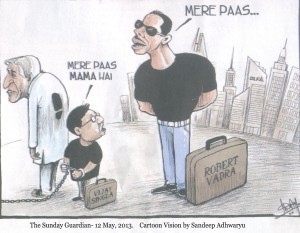
वास्तव में, मैं मानता हूं कि कोलगेट और रेलगेट काण्डों में लिए गए निर्णयों में कर्नाटक के नतीजों ने ठोस निर्णायक योगदान दिया है! कर्नाटक चुनावी नतीजों से पूर्व, कांग्रेस पार्टी इन दोनों घोटालों में कुछ भी न करने का मन बनाकर बैठी थी, भले ही इसके चलते बजट सत्र का दूसरा भाग व्यर्थ चला जाए।
इस तरह के समाचार प्रकाशित हुए हैं कि हम कर्नाटक इसलिए हारे क्योंकि हमने येदिरुप्पा को पार्टी से बाहर कर दिया था। मुझे कुछ प्रमुख स्तम्भकारों की यह टिप्पणियां देखने को मिलीं: देखो कैसे सोनियाजी ने वीरभद्र सिंह पर लगे आरोपों को दरकिनार कर कांग्रेस के लिए फायदा पाया। कर्नाटक में उठाए गए सैध्दान्तिक फैसले पर भाजपा को अपने आप पर गर्व है। नतीजा सामने है कि भाजपा ने ‘दक्षिण में जमाई अपनी जमीन को खो दिया।
सर्वप्रथम, भाजपा ने येदिरूप्पा को बाहर नहीं निकाला; उन्होंने स्वयं ही पार्टी छोड़ी और केजीपी के नाम से अपनी एक अलग पार्टी बनाने का निर्णय किया। वास्तव में, जब यह स्पष्ट हो गया था कि वह खुलेआम भ्रष्टाचार में लिप्त हैं, यदि तभी पार्टी ने तुरंत कड़ी कार्रवाई की होती तो हालात आज कुछ और होते।
लेकिन अनेक महीनों तक उनकी कारगुजारियों को नजरअंदाज कर किसी तरह उन्हें मनाने के प्रयास होते रहे। इसके लिए तर्क दिया जाता रहा कि यदि पार्टी ने ‘व्यवहारिक‘ दृष्टि नहीं अपनाई तो वह दक्षिण में अपनी एकमात्र सरकार को गंवा देगी।
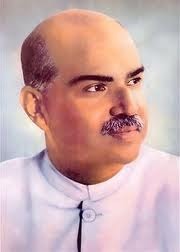 इस अवधि में, अक्सर मैं पार्टी के अपने सहयोगियों को बताया करता था कि ऐसा संकट प्रारम्भिक वर्षों में राजस्थान में भी आया था। भाजपा की पूर्ववर्ती जनसंघ की स्थापना सन् 1951 में डा0 श्यामा प्रसाद मुकर्जी ने सन् 1952 के पहले आम चुनावों से पहले की थी।
इस अवधि में, अक्सर मैं पार्टी के अपने सहयोगियों को बताया करता था कि ऐसा संकट प्रारम्भिक वर्षों में राजस्थान में भी आया था। भाजपा की पूर्ववर्ती जनसंघ की स्थापना सन् 1951 में डा0 श्यामा प्रसाद मुकर्जी ने सन् 1952 के पहले आम चुनावों से पहले की थी।
स्वतंत्रता के पहले दशक (1947-57) के दौरान राजस्थान जनसंघ का एक पदाधिकारी होने के नाते मैं सन् 1952 के चुनावों में पार्टी की शानदार सफलता का प्रत्यक्षदर्शी रहा हूं और बाद में उत्पन्न हुए संकट का भी।
सन् 1952 में जनसंघ ने तीन लोकसभाई और सभी राज्य विधानसभाओं में 35 सीटें जीती थीं। इन तीन सीटों में से दो पश्चिम बंगाल (डा. एस.पी. मुकर्जी और श्री दुर्गा चरण बनर्जी) और एक राजस्थान (बैरिस्टर उमाशंकर त्रिवेदी) से थीं।
राज्य विधानसभाओं की कुल 35 सीटों में से 9 पश्चिम बंगाल और 8 राजस्थान से मिली थीं। राजस्थान में पार्टी के सम्मुख उपजा संकट यह था कि पार्टी ने अपने चुनाव घोषणा पत्र में जागीरदारी प्रथा के उन्मूलन का वायदा किया था; लेकिन राजस्थान में चुने गए आठों विधायक स्वयं जागीरदार थे!
जब राज्य विधानसभा शुरु हुई तो कांग्रेस पार्टी ने अपना स्पीकर बनाया और डिप्टी स्पीकर पद जनसंघ को दिया। श्री लाल सिंह शखातावत डिप्टी स्पीकर चुने गए।
विधानसभा के पहले ही सत्र में कांग्रेस पार्टी ने जो विधेयक प्रस्तुत किए उनमें से एक था जागीरदारी प्रथा के उन्मूलन का। जब हमने अपनी पार्टी के विधायकों को पार्टी के घोषणा पत्र में किए गए वायदे की ओर ध्यान दिलाते हुए इस विधेयक को समर्थन देने को कहा तो उनमें से अधिकांश ने साफ इंकार कर दिया।
हमने नई दिल्ली में डा. मुकर्जी को फोन पर इस संकट की जानकारी दी। उन्होंने कहा कि वे स्वयं जयपुर आकर विधायकों से बात करेंगे।
मैं उन दिनों को और उस तनाव को जो उस दौर में हमने झेला, को कभी नहीं भूल सकता। जब डा. मुकर्जी वहां पहुंचे तो तनाव और बढ़ गया। 8 में 6 विधायक चुपचाप अपने-अपने क्षेत्रों में चले गए। इनमें नवनिर्वाचित डिप्टी-स्पीकर भी शामिल थे। जो दो विधायक वहां थे वे डा. मुकर्जी से मिले और उन्हें सूचित किया कि वे पार्टी के निर्णय का पालन करेंगे; जबकि शेष विधायकों ने इस प्रस्तावित विधेयक के विरोध का मन बनाया।
डा. मुकर्जी ने पार्टी के पदाधिकारियों को परामर्श दिया कि इन असंतुष्टों को मनाने का एक और अंतिम प्रयास किया जाए, लेकिन यदि वे तब भी नहीं मानते तो उनके विरुध्द अनुशासनात्मक कार्रवाई करने में संकोच न करें।
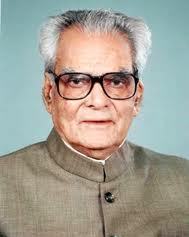 यह आसान निर्णय नहीं था। हम उस समय के महासचिव पण्डित दीनदयाल उपाध्यक्ष के सतत् सम्पर्क में थे। मैं यह कभी नहीं भूल सकता कि 8 में से 6 विधायकों को निष्कासित करने का निर्णय पार्टी ने किया। और जो दो शेष बचे थे, उनमें से एक थे स्वर्गीय श्री भेरों सिंह शेखावत, जो तीन बार राजस्थान के मुख्यमंत्री बने और बाद में भारत के उपराष्ट्रपति पद तक पहुंचे। देश में ऐसे कितने दल होंगे जो इस तरह के निर्णय लेने की हिम्मत रखते हों? ओर जनसंघ ने ऐसी हिम्मत अपने शैशवकाल में ही दिखाई!
यह आसान निर्णय नहीं था। हम उस समय के महासचिव पण्डित दीनदयाल उपाध्यक्ष के सतत् सम्पर्क में थे। मैं यह कभी नहीं भूल सकता कि 8 में से 6 विधायकों को निष्कासित करने का निर्णय पार्टी ने किया। और जो दो शेष बचे थे, उनमें से एक थे स्वर्गीय श्री भेरों सिंह शेखावत, जो तीन बार राजस्थान के मुख्यमंत्री बने और बाद में भारत के उपराष्ट्रपति पद तक पहुंचे। देश में ऐसे कितने दल होंगे जो इस तरह के निर्णय लेने की हिम्मत रखते हों? ओर जनसंघ ने ऐसी हिम्मत अपने शैशवकाल में ही दिखाई!
इसमें कोई आश्चर्य नहीं कि ऐसे अनेक उदाहरण गिनाए जा सकते हैं जब अन्य दलों ने गंभीर दुराचारों को नजर अंदाज कर दिया, लेकिन हमें यह अहसास रहना चाहिए कि लोग जिस पैमाने पर भाजपा को तौलते हैं वह दूसरी पार्टियों के नजरिए से अलग है! वह इसलिए कि इन वर्षों में हमारे शानदार कामों से जनता में हमसे बड़ी आशाएं पैदा हुई हैं, इसलिए एक छोटी सी भी असावधानी हमारे लिए महंगी साबित हो सकती है। और कर्नाटक संकट से निपटने में हमारा रुख किसी भी रुप में एक छोटी असावधानी कदापि नहीं थी। मैं निरंतर कहता रहा हूं कि कर्नाटक से निपटने में हमारी दृष्टि पूर्णतया अवसरवादी थी।
टेलपीस (पश्च्यलेख)
आज के पायनियर दैनिक के मुख पृष्ठ पर एक बॉक्स प्रकाशित हुआ है, जिसका शीर्षक है: स्नब टू पीएम (Snub to PM)? इसमें कहा गया है कि श्रीमती सोनिया गांधी शीघ्र ही पार्टी के वरिष्ठ नेताओं से मिलकर मंत्रिमंडल विस्तार पर चर्चा करेंगी।
क्या प्रधानमंत्री ने अपनी केबिनेट के बारे में निर्णय लेने का अधिकार छोड़ दिया है? दो केंद्रीय मंत्रियों के हटाए जाने सम्बंधी आज प्रकाशित समाचारों में मुख्यतया यह भाव है कि सोनियाजी ने ही प्रधानमंत्री के इन ‘दोनों लोगों‘ को हटवाया।
तनिक आत्म सम्मान का भी तकाजा है कि प्रधानमंत्री समय की मांग को समझें और शीघ्र चुनावों का आदेश दें।
लालकृष्ण आडवाणी
नई दिल्ली
12 मई, 2013

May 11, 2013
KARNATAKA HAS A LESSON FOR BJP AS WELL AS CONGRESS
I feel sorry that we have lost in Karnataka. But I am not surprised. The surprise would have been if we had won.
As it is, I think the Karnataka results have a profound lesson for the BJP. In a way it has a lesson also for the Congress. The common lesson for both of us is : let’s not take the common man for granted. He himself may occasionally deviate from the norms of ethical conduct, but he does feel extremely angry when he sees those at the helm of national affairs behaving immorally. This is the principal reason why there is such intense allergy towards politicians generally nowadays.
If corruption provokes indignation in Bangalore, why would it not cause the same feeling in New Delhi?

Actually, I hold that it is the Karnataka results that have contributed to clinching action being taken even in the matter of Coalgate and Railgate! Before Karnataka results, the Congress Party seemed determined not to do anything about the two scams even if it meant a total washout of the second half of the Budget Session.
There have been press reports that we lost Karnataka because we threw out Yeddyurappa. I have seen comments by eminent pressmen taunting the BJP: See how Soniaji overlooked the shortcomings of Virbhadra Singh, and earned an advantage for the Congress. BJP prides itself on taking a principled stand in Karnataka. The consequence is that BJP has lost even “the toehold it had acquired in the south.”
Let me first point out that BJP did not throw out Yeddi; it is he who broke away from the BJP and decided to form a factional party of his own, the KJP. In fact, when it became apparent that he was unabashedly indulging in corruption, if the party had immediately taken firm action, the course of events would have been quite different.
But for several months, frantic efforts went on somehow to keep placating him by condoning his peccadilloes. The justification given was that if the party did not adopt such a ‘pragmatic’ approach we would lose the only government that we had in the south.
 During these months I often cited to colleagues the crisis the party had faced in its early years in Rajasthan. Jana Sangh, the forerunner of the BJP, was launched in 1951 by Dr. Syama Prasad Mookerji just before the First General Elections of 1952. Dr. Mookerji was elected President of the Party.
During these months I often cited to colleagues the crisis the party had faced in its early years in Rajasthan. Jana Sangh, the forerunner of the BJP, was launched in 1951 by Dr. Syama Prasad Mookerji just before the First General Elections of 1952. Dr. Mookerji was elected President of the Party.
As an office-bearer of the Rajasthan Jana Sangh during the first decade of independence (1947 -57), I was witness first to the remarkable success of the party in the 1952 polls, and then to the crisis it had to confront.
In 1952, the Jana Sangh won three seats in the Lok Sabha and 35 seats in all the State Assemblies. Of the 3 seats in the Lok Sabha, two were from West Bengal (Dr. S.P. Mookerji and Shri Durga Charan Banerjee) and one from Rajasthan (Barrister Uma Shankar Trivedi).
Of the total 35 seats Jana Sangh secured in the State Assemblies, 9 came from West Bengal and 8 from Rajasthan. The crisis faced in Rajasthan owed to the fact that the party, in its election manifesto, had committed itself to abolition of the Jagirdari system; but all the 8 MLAs elected in Rajasthan were themselves Jagirdars!
When the State Assembly met, the Congress Party elected its own Speaker and offered Deputy Speakership to the Jana Sangh. Shri Lal Singh Shaktawat was elected Deputy Speaker of the House.
One of the Bills the Congress Party introduced in this very first session was the Bill to abolish Jagirdari system. When we drew the attention of our party MLAs to our party manifesto and asked them to support this particular legislation, most of them flatly refused.
We rang up Dr. Mookerji in New Delhi, and apprised him of the problem. He said he would come to Jaipur personally and speak to the MLAs.
I can never forget those days and the kind of tension we all were under at the time. The tension only increased when Dr. Mookerji arrived. Six of our eight MLAs quietly went away to their respective constituencies. These included the newly elected Deputy Speaker also. The two MLAs who stayed on met Dr. Mookerji, and conveyed to him that while they would abide by the party’s decision the rest had made up their mind to oppose the proposed Bill.
Dr. Mookerji advised the party’s office bearers to make a last effort to persuade the dissidents, but if they persisted, not to hesitate taking disciplinary action against them.
 It wasn’t an easy decision to take. We were constantly in touch with Pandit Deendayal Upadhyaya also, who had been named General Secretary. I can never forget that out of the eight MLAs the party decided to expel six. And one of the two who remained was Late Shri Bhairon Singh Shekhawat, who became Chief Minister of Rajasthan three times, and later on rose to become Vice President of the Indian Union. How many parties in the country would have the guts to take this kind of decision? And the Jana Sangh demonstrated such courage even in its infancy!
It wasn’t an easy decision to take. We were constantly in touch with Pandit Deendayal Upadhyaya also, who had been named General Secretary. I can never forget that out of the eight MLAs the party decided to expel six. And one of the two who remained was Late Shri Bhairon Singh Shekhawat, who became Chief Minister of Rajasthan three times, and later on rose to become Vice President of the Indian Union. How many parties in the country would have the guts to take this kind of decision? And the Jana Sangh demonstrated such courage even in its infancy!
No wonder, while instances can be cited when other parties do get away with gross misdemeanours, we must realize that the yardstick by which the people judge the BJP is not the same as that by which they judge other parties! Because of the high expectations we have aroused in the people by our excellent track record in all these years, even minor indiscretions can prove costly for us. And our response to the Karnataka crisis was not at all a minor indiscretion. I have consistently maintained that our handling of Karnataka has been absolutely opportunistic.
TAILPIECE
Today’s PIONEER carries on its front page a highlighted box item captioned : SNUB TO PM? It goes on to say that Smt. Sonia Gandhi will be meeting senior party leaders soon to discuss the Cabinet reshuffle.
Has the Prime Minister abdicated his right even to decide about his own cabinet? Today’s news reports about the removal of two Union Ministers generally emphasise that it is Soniaji who has sacked ‘two PM’s men.’
Sheer self-respect demands that the PM calls it a day, and orders an early general election.
L.K. Advani
New Delhi
May 12, 2013

May 10, 2013
एक बच्चे ने कहा, सम्राट ने तो कोई वस्त्र पहना ही नहीं है
हंस एंडरसन की रोचक कहानी ‘दि एम्परर्स् न्यू क्लोज़ (सम्राट के नए वस्त्र) मैंने पहली बार स्कूल के दिनों में पढ़ी थी।
एंडरसन की कहानी दो बुनकरों के बारे थी जिन्होंने सम्राट को एक नए वस्त्र की पोशाक देने का वायदा किया था जो सर्वथा सुंदर होने के साथ ही उसकी उल्लेखनीय विशेषता होगी कि वह अदृश्य रहेगी जिसे अक्षम्य रूप से कोई मूर्ख नहीं देख सकेगा और अयोग्य अपने पद पर नहीं रह पाएगा।
इन दोनों बुनकरों जो वास्तव में ठग थे, को सुनकर सम्राट जो हमेशा अच्छे और मंहगे वस्त्रों का शौकीन था ने सोचा ”यदि मैं इस कपड़े की बनाई गई पोशाक पहनूंगा तो मैं पता लगा संकूगा कि मेरे राज में कौन व्यक्ति अपने पद के योग्य है और मैं चतुरों और मूर्खों में भेद कर सकूंगा।”
कहानी का चरमोत्कर्ष तब आया जब सम्राट अपनी ‘नई पोशाक‘ को धारण कर अपनी प्रजा के सामने निकला, इनमें से अनेकों ने उसकी इस कथित असाधारण पोशाक की भूरि-भूरि प्रशंसा की परन्तु तभी एक बच्चा चिल्लाया कि ”लेकिन उन्होंने (सम्राट) तो कोई वस्त्र पहना ही नहीं है!”
* * *
सीबीआई द्वारा सर्वोच्च न्यायालय में यह स्वीकार किए जाने कि उन्होंने इन दोनों घोटालों सम्बन्धी जांच रिपोर्ट को विधि मंत्री और प्रधानमंत्री कार्यालय के साथ साझा किया, पर सर्वोच्च न्यायालय ने उनके इस कृत्य के लिए उसे काफी लताड़ा है।
सीबीआई को ‘एक पिंजरे में बंद तोते‘ की तरह बताते हुए सर्वोच्च न्यायलय ने 8 मई के अपने निर्देश में सीबीआई को सभी ”दवाबों और खींचतान के विरुध्द डट कर खड़े होने को कहा। न्यायमूर्ति लोढा की अध्यक्षता वाली पीठ ने सीबीआई के इस निवेदन पर सवाल उठाए कि भले ही विधि मंत्री और प्रधानमंत्री कार्यालय के ईशारे पर कुछ महत्वपूर्ण बदलाव किए गए है, परन्तु रिपोर्ट का मुख्य अंश नहीं बदला गया है। सर्वोच्च न्यायलय ने अपने आदेश में कहा है कि ”सरकारी अधिकारियों के सुझाव पर रिपोर्ट का मुख्य तत्व (दिल) बदला गया।”
सरकार के कार्यकलापों के विरुध्द विपक्ष के आक्रोश को व्यापक स्तर पर मीडिया ने भी प्रकट किया। संसद के सदनों को सामान्य रुप से चलाने हेतु विपक्ष की कम से कम मांग यह थी कि विधि मंत्री को त्याग पत्र देना चाहिए और रेलवे मंत्री को बर्खास्त किया जाए।
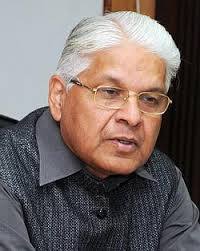
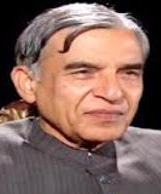 संसद में इस वर्ष का बजट सत्र अपने अंतिम सप्ताह में पहुंच चुका था। कई दिनों से संसद में कामकाज नहीं हो सका था क्योंकि लगभग समूचा विपक्ष ‘कोयलागेट‘ और ‘रेलगेट‘ जैसे महाघोटालों के लिए सरकार से जवाबदेही की मांग कर रहा था, विशेष तौर पर प्रधानमंत्री (जब यह कोयला खदानों का आवंटन किया गया तब वह कोयला मंत्री थे), विधि मंत्री और रेलवे मंत्री के इस्तीफे की मांग।
संसद में इस वर्ष का बजट सत्र अपने अंतिम सप्ताह में पहुंच चुका था। कई दिनों से संसद में कामकाज नहीं हो सका था क्योंकि लगभग समूचा विपक्ष ‘कोयलागेट‘ और ‘रेलगेट‘ जैसे महाघोटालों के लिए सरकार से जवाबदेही की मांग कर रहा था, विशेष तौर पर प्रधानमंत्री (जब यह कोयला खदानों का आवंटन किया गया तब वह कोयला मंत्री थे), विधि मंत्री और रेलवे मंत्री के इस्तीफे की मांग।
बेशर्मी से अपने दोनों मत्रियों का बचाव करते हुए, विशेष रुप से विधि मंत्री का, जिन्हें सरकार से हटाने से प्रधानमंत्री का पद पर बने रहना असम्भव हो जाता, सरकार ने संसद की कार्यवाही 10 मई के बजाय दो दिन पूर्व यानी 8 मई को ही अनिश्चितकाल के लिए ही स्थगित कर दी।
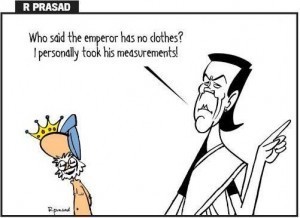
समाचारपत्रों और टीवी चैनलों द्वारा की गई निंदात्मक टिप्पणियों में, मैं मेल टुडे में आर. प्रसाद के कार्टून से विशेष रुप से प्रभावित हुआ जोकि उपरोक्त वर्णित हंस एंडरसन की रोचक कहानी पर आधारित है। मुझे पता नहीं कि प्रधानमंत्री और कांग्रेस अध्यक्षा ने इसे देखा है या नहीं।
इस कार्टून ने मुझे 1975-1977 के आपातकाल के दौरान अबू द्वारा बनाए गए कार्टून का स्मरण करा दिया जिसमें राष्ट्रपति फखरुद्दीन अली अहमद को एक बाथ टब में लेटे दिखाया गया और वह उनको हस्ताक्षर के लिए दस्तावेज दे रहे अपने सहायक को कह रहे हैं ”यदि और अधिक अध्यादेश हैं तो उन्हें थोड़ा इंतजार करने के लिए कहिए!” सरकार या आपातकाल के आलोचक अनेक समाचारपत्रों और पत्रिकाओं को या तो प्रतिबंधित कर दिया गया या जबरदस्ती बंद करा दिया गया। परन्तु उन दिनों प्रकाशित होने वाली एक मात्र कार्टून पत्रिका ‘शकरर्स वीकली‘ ने स्वयं ही प्रकाशन बंद करने का निर्णय लिया। 31 अगस्त, 1975 को अपने अंतिम सम्पादकीय ‘फेयरवेल‘ (विदाई) शीर्षक से सम्पादक ने निम्नलिखित शानदार लेख लिखा :
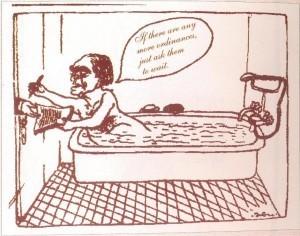
सम्पादकीय में आपातस्थिति का नाम तक नहीं लिया गया, लेकिन उस समय के तानाशाही शासन की इससे ज्यादा कटु निंदा और नहीं हो सकती थी। सम्पादकीय निम्न है:-
“हमारे पहले सम्पादकीय में हमने रेखांकित किया था कि हमारा काम हमारे पाठकों को हंसाना होगा - दुनिया पर, आडम्बरपूर्ण नेताओं, कपटपूर्ण आचरण, कमजोरियों और अपने पर। पर ऐसे हास्य को समझने वाले और विनोदी स्वभाव रखने वाले लोग कैसे होते है? ये ऐसे लोग हैं जो व्यवहार में निश्चित सभ्यता व लोकाचार रखते हैं तथा जहां सहिष्णुता और दयालुपन का भाव होता है। अधिनायकवाद हंसी को नहीं बर्दाश्त करता क्योंकि लोग तानाशाह पर हसेंगे और वह नहीं चलेगा। हिटलर के सभी वर्षों में, कभी प्रहसन नहीं बना, कोई अच्छा कार्टून नहीं था, न ही पैरोडी थी या मजाकिया नकल भी नहीं थी।
इस दृष्टि से, दुनिया और दु:खद रुप से भारत असंवेदनशील, गंभीर और असहनशील होता जा रहा है। हास्य जब भी हो तो संपुटित होता है भाषा अपने आप में काम करने लगती है। प्रत्येक व्यवसाय अपनी शब्दावली विकसित कर रहा है। अर्थशास्त्री बंधुओं के समाज से बाहर एक अर्थशास्त्री अजनबी है, अनजाने क्षेत्र में हिचकिचाकर बोल रहा है, अपने बारे में अनिश्चित, गैर-आर्थिक भाषा से भयभीत है। यही वकीलों, डाक्टरों, अध्यापकों, पत्रकारों और उनके जैसों का हाल है।
इससे ज्यादा खराब यह है कि मानवीय कल्पना वीभत्स और विकृत में परिवर्तित होती प्रतीत होती है। पुस्तकें और फिल्में या तो हिंसा या सेक्स के भटकाव पर हैं। अनचाही घटनाओं और कृत्यों से लगने वाले झटके के बिना लोग जागरूक होते नहीं दिखते। लिखित शब्दों और समाज पर सिनेमा का अर्न्तसंवाद हो या न हो, समाज इन प्रवृत्तियों को अभिव्यक्त करता है। लूट-मार, अपहरण आदि अपराध नित्य हो रहे हैं और राजनीतिक कलेवर चढ़ा कर इन्हें सामाजिक स्वीकार्यता भी दी जा रही है।
परन्तु ”शंकरर्स वीकली” एक पक्की आशावादी है। हम निश्चिंत हैं कि वर्तमान परिस्थितियों के बावजूद, दुनिया खुशहाल और अधिक तनाव रहित स्थान बनेगी। मनुष्य की आत्मा अंतत: सभी मौत की शक्तियों पर हावी होगी और जीवन इतना पल्लवित होगा जहां मानवता अपना उच्चतम उद्देश्य हासिल करेगी। कुछ इसे भगवान पुकारते हैं। हमें इसे मानव नियति कहना पसंद करते हैं। और इसी विचार के साथ हम आप से विदा ले रहे हैं और आपके उज्जवल भविष्य की कामना करते हैं।”
लालकृष्ण आडवाणी
नई दिल्ली
9 मई, 2013

May 8, 2013
EMPEROR HAS NO CLOTHES, SAYS A CHILD
I was in school when I had first read the famous fairy tale by Hans Anderson titled “The Emperor’s New Clothes”.
Anderson’s story was about two weavers who promise an emperor a new suit of clothes which would be exceptionally beautiful and yet have the remarkable quality of being invisible to any one unpardonably stupid or then, incompetent for his office.
Listening to the two weavers, who were actually swindlers, the emperor who was always fond of good and expensive clothes thought “If I were to be dressed in a suit made of this cloth, I would be able to find out which men in my empire were unfit for their places and I would also be able to distinguish the clever ones from the stupid.”
The climax of the story comes when the Emperor parades before his subjects in his “new clothes”, with many of them expressing adoration for his supposedly extraordinary attire, and yet a child crying out aloud “But he is not wearing anything at all !”
* * *
Following the CBI’s admission to the Supreme Court that they had shared with the Law Minister as well as the PMO their status reports on Coalgate and Railgate, two megascams, the Supreme Court had severely chastised them for what they had done.
Observing that the CBI was like “a caged parrot”, the Supreme Court in its order on May 8 directed the CBI to stand up to all “pulls and pressures.” The bench headed by Justice Lodha also disputed the CBI observation that though some significant changes had been made by them in their Report at the instance of the Law Minister and the PMO, the thrust of the Report had not been changed. In its order, the Supreme Court said, “The heart of the report was changed on suggestions from government officials.”
The opposition’s anger with the Government’s conduct has been widely shared by the media. The opposition’s minimum demand for allowing the House to function normally was that the Law Minister should resign, and the Railway Minister be sacked.

 This year’s Budget Session of Parliament had just entered its last week. No business was being transacted for several days now because almost the entire opposition was angrily demanding that Government be made to pay for the two megascams. The specific demand was for the resignation of the Prime Minister (who was Coal Minister when the coal allotments were made), the Law Minister and the Railways Minister.
This year’s Budget Session of Parliament had just entered its last week. No business was being transacted for several days now because almost the entire opposition was angrily demanding that Government be made to pay for the two megascams. The specific demand was for the resignation of the Prime Minister (who was Coal Minister when the coal allotments were made), the Law Minister and the Railways Minister.
Having decided to brazenly defend its two ministers, more particularly its Law Minister, whose dropping from Government would have made the PM’s continuance untenable, Government adjourned Parliament sine die two days ahead of schedule, on May 8 instead of May 10.

While both the print media as well as the TV channels broadly reflected the opposition MPs’ anger, I was particularly impressed by R. Prasad’s cartoon in the MAIL TODAY, based on the above fairy tale by Hans Anderson. I wonder if the PM and the Congress President have seen it.
This cartoon reminds me of Abu’s famous cartoon during the 1975-77 emergency depicting Rashtrpati Fakhruddin Ali Ahmed in a bath tub, telling one of his aides who is handing him a document to sign, “If there are any more ordinances, just ask them to wait.” Many papers and journals critical of the establishment and/or the emergency were banned, or forced to close down. But Shankar’s Weekly, the one and only cartoon periodical of those days, decided on its own to wind up. In its last editorial titled “Farewell”, dated 31st August, 1975, the editor wrote a brilliant piece.

The editorial did not even use the word Emergency anywhere, but there can hardly be a more devastating comment on the authoritarian regime of that period than this one. The editorial ran as follows :
“In our first editorial we made the point that our function was to make our readers laugh – at the world, at pompous leaders, at humbug, at foibles, at ourselves. But, what are the people who have a developed sense of humour? It is a people with certain civilized norms of behaviour, where there is tolerance and a dash of compassion. Dictatorships cannot afford laughter because people may laugh at the dictator and that wouldn’t do. In all the years of Hitler, there never was a good comedy, not a good cartoon, not a parody, or a spoof.
From this point, the world and sadly enough India have become grimmer. Humour, whenever it is there, is encapsuled. Language itself has become functional, each profession developing its own jargon. Outside of the society of brother-economists, an economist is a stranger, floundering in uncharted territory, uncertain of himself, fearful of non-economic language. It is the same for lawyers, doctors, teachers, journalists and such-like.
What is worse, human imagination seems to be turning to the macabre and the perverse. Books and films are either on violence or sexual deviations. Nothing seems to awaken people except unpleasant shocks. Whether it is the interaction of the written word and the cinema on society or not, society reflects these attitudes. Hijackings, mugging in the dark, kidnappings and plain murder are becoming everyday occurrences and sometimes lend respectability by giving it some kind of political colouration.
But “Shankar’s Weekly” is an incurable optimist. We are certain that despite the present situation, the world will become a happier and more relaxed place. The spirit of man will in the end overcome all death-dealing forces and life will blossom to a degree where humanity will find its highest purpose discharged. Some call this God. We prefer to call it human destiny. And on that thought we bid you good-bye and the best of luck.”
L.K. Advani
New Delhi
May 9, 2013

May 4, 2013
भारत के प्रधानमंत्रियों की बैलेंसशीट
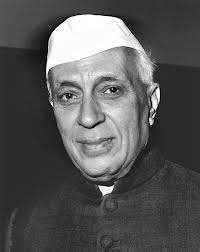 स्वतंत्रता प्राप्ति के 66 वर्षों में, भारत में अब तक चौदह प्रधानमंत्री बने, जिनमें से 6 का कार्यकाल एक वर्ष से भी कम का रहा। शेष आठ में से दो ने पंद्रह वर्षों से ज्यादा समय तक देश पर शासन किया। ये थे पण्डित नेहरू (17 वर्ष) और श्रीमती इंदिरा गांधी (16 वर्ष)।
स्वतंत्रता प्राप्ति के 66 वर्षों में, भारत में अब तक चौदह प्रधानमंत्री बने, जिनमें से 6 का कार्यकाल एक वर्ष से भी कम का रहा। शेष आठ में से दो ने पंद्रह वर्षों से ज्यादा समय तक देश पर शासन किया। ये थे पण्डित नेहरू (17 वर्ष) और श्रीमती इंदिरा गांधी (16 वर्ष)।
अन्य चार प्रधानमंत्रियों का कार्यकाल पांच वर्ष या उससे अधिक रहा। इनमें डा0 मनमोहन सिंह (9 वर्ष), अटल बिहारी वाजपेयी (6 वर्ष), पी.वी. नरसिम्हा राव और राजीव गांधी (5-5 वर्ष) तक प्रधानमंत्री रहे।
मोरारजी देसाई ढाई वर्ष तक प्रधानमंत्री रहे, और लाल बहादुर शास्त्री का कार्यकाल ताशकंद की घटनाओं के चलते मात्र डेढ़ वर्ष ही रहा।
जिन 6 प्रधानमंत्रियों का कार्यकाल एक वर्ष से भी कम रहा उनमें शामिल हैं वी.पी. सिंह, एच.डी. देवेगौडा और आई.के. गुजराल (11-11 महीने), चन्द्रशेखर (8 महीने), चरण सिंह (6 महीने) और गुलजारी लाल नंदा (1 महीना)।
***
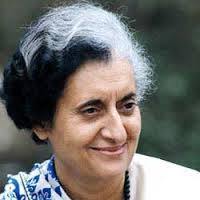 जिन दो प्रधानमंत्रियों ने देश पर सर्वाधिक ज्यादा समय शासन किया, उनका प्रभाव जनमानस पर ज्यादा गहरा रहा है, लेकिन यदि उनकी सफलताओं और असफलताओं की बैलेंस शीट (लेखा-जोखा) बनाई जाएगी तो कुल मिलाकर नतीजे ज्यादा खुश करने वाले नहीं निकलेंगे।
जिन दो प्रधानमंत्रियों ने देश पर सर्वाधिक ज्यादा समय शासन किया, उनका प्रभाव जनमानस पर ज्यादा गहरा रहा है, लेकिन यदि उनकी सफलताओं और असफलताओं की बैलेंस शीट (लेखा-जोखा) बनाई जाएगी तो कुल मिलाकर नतीजे ज्यादा खुश करने वाले नहीं निकलेंगे।
पण्डित नेहरू के मामले में, जिन्हें महात्मा गांधी ने कांग्रेस की अधिकतर राज्य इकाइयों द्वारा सरदार पटेल के पक्ष में होने के बावजूद, भारत सरकार चलाने हेतु चयनित किया, की सभी उपलब्धियों पर उनके द्वारा चीन पर किया गया गलत विश्वास और उनके रक्षा मंत्री द्वारा राष्ट्रीय सुरक्षा तैयारियों की अपराधिक उपेक्षा ने पानी फेर दिया।
पण्डितजी की विदेश और रक्षा नीतियों के फलस्वरूप देश को 1962 में चीन के हाथों शर्मनाक पराजय झेलनी पड़ी, एक ऐसा अपमान जिसे कभी भुलाया नहीं जा सकेगा।
श्रीमती गांधी की सर्वाधिक शानदार उपलब्धि थी 1971 में पाकिस्तान पर भारत की निर्णायक विजय और स्वतंत्र बंगलादेश का निर्माण।
लेकिन श्रीमती गांधी के कार्यकाल में 1975 में इलाहाबाद उच्च न्यायालय द्वारा उनका लोकसभाई चुनाव रद्द कर देने और आगामी छ: वर्षों तक किसी भी चुनाव लड़ने पर प्रतिबंध लगाने सम्बन्धी निर्णय के चलते तत्कालीन कांग्रेस सरकार ने देश पर आपातकाल थोप दिया, सभी मूलभूत अधिकार निलम्बित कर दिए, एक लाख से अधिक विपक्षी कार्यकर्ताओं को जेल में ठूंस दिया और एक प्रकार से लोकतंत्र को समाप्ति के कगार पर पहुंचा दिया।
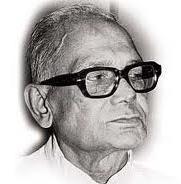 आपातकाल विरोधी संघर्ष में जयप्रकाश नारायण के प्रेरणादायी नेतृत्व और 1977 के लोकसभाई चुनावों में कांग्रेस पार्टी को भारतीय मतदाताओं द्वारा सिरे से नकार दिए जाने ने भारतीय लोकतंत्र को बचाया, और न केवल भारत को सामान्य स्थिति में वापस लाए अपितु इसने हमारे राजनीतिक आकाओं के लिए भी सदैव के लिए चेतावनी दी कि अपने संकीर्ण हितों की रक्षा और संवर्ध्दन के लिए कभी भी आपातकाल सम्बन्धी संवैधानिक प्रावधानों का दुरूपयोग करने की सोचना भी नहीं।
आपातकाल विरोधी संघर्ष में जयप्रकाश नारायण के प्रेरणादायी नेतृत्व और 1977 के लोकसभाई चुनावों में कांग्रेस पार्टी को भारतीय मतदाताओं द्वारा सिरे से नकार दिए जाने ने भारतीय लोकतंत्र को बचाया, और न केवल भारत को सामान्य स्थिति में वापस लाए अपितु इसने हमारे राजनीतिक आकाओं के लिए भी सदैव के लिए चेतावनी दी कि अपने संकीर्ण हितों की रक्षा और संवर्ध्दन के लिए कभी भी आपातकाल सम्बन्धी संवैधानिक प्रावधानों का दुरूपयोग करने की सोचना भी नहीं।
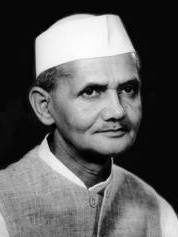
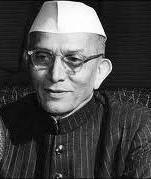 सर्वाधिक ज्यादा समय तक प्रधानमंत्री रहने वाले दोनों की तुलना में शास्त्रीजी और मोरारजी देसाई का कार्यकाल काफी कम रहा। लेकिन उनकी सत्यनिष्ठा, ईमानदारी और कर्तव्यनिष्ठ व्यवहार ने लोगों पर गहरी छाप छोड़ी और जनता में इन दोनों के लिए अनन्य सम्मान अर्जित किया।
सर्वाधिक ज्यादा समय तक प्रधानमंत्री रहने वाले दोनों की तुलना में शास्त्रीजी और मोरारजी देसाई का कार्यकाल काफी कम रहा। लेकिन उनकी सत्यनिष्ठा, ईमानदारी और कर्तव्यनिष्ठ व्यवहार ने लोगों पर गहरी छाप छोड़ी और जनता में इन दोनों के लिए अनन्य सम्मान अर्जित किया।
1951 में डा0 श्यामा प्रसाद मुकर्जी ने भारतीय जनसंघ की स्थापना की। डा0 मुकर्जी के व्यक्तित्व और गठित नई पार्टी की नीतियों और कार्यक्रमों ने हजारों देशभक्त युवाओं को अपनी ओर आकर्षित किया जिनकी मूल दीक्षा राष्ट्रीय स्वयंसेवक संघ में हुई थी। इनमें प्रमुख थे पण्डित दीनदयाल उपाध्याय, नानाजी देशमुख, अटल बिहारी वाजपेयी, कुशाभाऊ ठाकरे, सुंदर सिंह भण्डारी, जगन्नाथ राव जोशी, पी0 परमेश्वरन, डा0 बलदेव प्रकाश और केवल राम मलकानी।
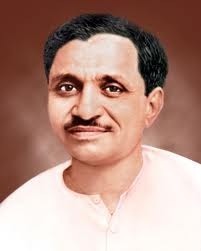
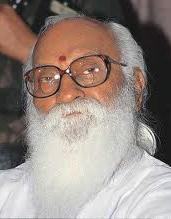
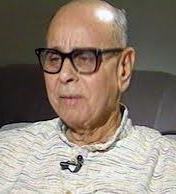
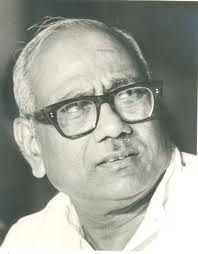
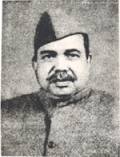
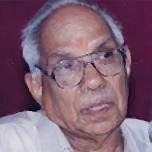
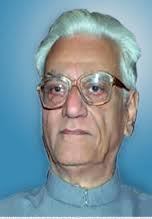
मेरा अपना राजनीतिक जीवन सन् 1951 में शुरू हुआ। इसलिए, 1952 से होने वाले भारत के प्रत्येक आम चुनावों में मुझे या तो प्रचारकर्ता या फिर एक उम्मीदवार के रूप में भाग लेने का मौका मिलता रहा है।
मैं अपने लिए यह सौभाग्यशाली मानता हूं कि मुझे हमारी पार्टी के विचारक दीनदयालजी, हमारी पार्टी के सबसे कद्दावर नेता अटलजी, और नानाजी देशमुख के साथ निकट से काम करने का मौका मिला; नानाजी ने हम सब के सामने यह सिध्द कर दिखाया कि कैसे राजनीतिक गतिविधियों को ग्रामीण जनता के लिए रचनात्मक कार्यक्रमों के साथ मिलाकर चलाया जा सकता है।
उन चार प्रधानमंत्रियों जिन्होंने पांच वर्ष या उससे अधिक समय तक शासन किया है, में से एक डा0 मनमोहन सिंह पिछले नौ वर्षों से सत्ता में हैं। यदि लोकसभाई चुनाव अपने निर्धारित समय सन् 2014 में होते हैं तो तब तक वह प्रधानमंत्री के रूप में दस वर्ष पूरे कर लेंगे। नेहरू परिवार से बाहर वाले व्यक्ति के लिए यह एक अद्वितीय विशेषता होगी। परन्तु इससे भी अधिक अद्वितीय परन्तु संदेहास्पद विशेषता यह भी होगी, कि स्वतंत्र भारत के राजीनीतिक इतिहास में वे एकमात्र ऐसे प्रधानमंत्री हैं जो लोकसभा के लिए कभी भी निर्वाचित न होकर भी इस पद पर हैं!
साथ ही, मैं यह नहीं भूल सकता कि सन् 2009 में जब मैंने डा0 सिंह को देश का सर्वाधिक कमजोर प्रधानमत्री कहा था, तो मेरे ही कुछ सहयोगियों को लगा कि यह ज्यादा हो गया ह। लेकिन मैं आज भी कहता हूं कि उनकी यही कमजोरी जो उन्हें 10 जनपथ के सम्मुख गौण महत्व का बनाती है और परिणामतया प्रधानमंत्री पद में निहित शक्तियों का उपयोग कर पाने में वह असफल हो रहे हैं।
नाम
अवधि
दल
श्री जवाहरलाल नेहरू
15 अगस्त, 1947-27 मई, 1964
कांग्रेस
श्री गुलजारीलाल नंदा
27 मई, 1964-9 जून, 1964
कांग्रेस
श्री लाल बहादुर शास्त्री
9 जून, 1964 - 11 जनवरी, 1966
कांग्रेस
श्री गुलजारी लाल नंदा
11 जनवरी, 1966 - 24 जनवरी, 1966
कांग्रेस
श्रीमती इंदिरा गांधी
24 जनवरी, 1966 - 24 मार्च, 1977
कांग्रेस
श्री मोरारजी देसाई
24 मार्च, 1977 - 28 जुलाई, 1979
जनता पार्टी
श्री चरण सिंह
28 जुलाई, 1979 - 14 जनवरी, 1980
जनता पार्टी
श्रीमती इंदिरा गांधी
14 जनवरी, 1980 - 31 अक्तूबर, 1984
कांग्रेस (आई)
श्री राजीव गांधी
31 अक्तूबर, 1984 - 2 दिसम्बर, 1989
कांग्रेस (आई)
श्री विश्वनाथ प्रताप सिंह
2 दिसम्बर, 1989 - 10 नवम्बर, 1990
जनता दल
श्री चंद्रशेखर
10 नवम्बर, 1990 - 21 जून, 1991
जनता दल
श्री पी.वी. नरसिम्हा राव
21 जून, 1991 - 16 मई, 1996
कांग्रेस (आई)
श्री अटल बिहारी वाजपेयी
16 मई, 1996 - 1 जून, 1996
भाजपा
श्री एच.डी. देवेगौडा
1 जून, 1996 - 21 अप्रैल, 1997
जनता दल
श्री इंद्रकुमार गुजराल
21 अप्रैल, 1997 - 19 मार्च, 1998
जनता दल
श्री अटल बिहारी वाजपेयी
19 मार्च, 1998 - 22 मई, 2004
भाजपा
डा0 मनमोहन सिंह
22 मई, 2004 - अभी तक
कांग्रेस
पुन:, यही डा0 मनमोहन सिंह की वह कमजोरी है, जिसके चलते यह इतिहास में दर्ज होगा कि भले ही व्यक्तिगत रूप से वह ईमानदार होंगे, परन्तु जिस सरकार का वह एक दशक से नेतृत्व कर रहे हैं, वह स्वतंत्र भारत की सर्वाधिक भ्रष्ट सरकार है और यह महज मीडिया रिपोर्टों के आधार पर नहीं अपितु अनेक न्यायिक निर्णयों और नियंत्रक महालेखाकार की अनेक रिपोर्टों से पुष्ट होता है।
जैसाकि इस ब्लॉग की शुरूआत में मैंने कहा कि मेरे राजनीतिक जीवन में अटलजी के साथ काम करने का अवसर मिलने को मैं अत्यन्त सौभाग्यशाली मानता हूं। मैं निश्चित रूप से मानता हूं कि कोई भी राजनीतिक विश्लेषक जब अटलजी के 6 वर्षीय शासन का निष्पक्ष आकलन करेगा तो उसे स्वीकारना ही होगा कि 1998 से 2004 तक का एनडीए शासन उपलब्धियों से भरा है और उसे अक्षरश: कुछ भी गलत नहीं मिलेगा। उस अवधि की कुछ उपलब्धियों को यदि सार रूप में कहना है तो वे निम्नलिखित हैं:
1) प्रधानमंत्री बनने के कुछ ही महीनों में भारत परमाणु हथियार सम्पन्न देश बना।
2) आर्थिक क्षेत्र में सरकार ने आधारभूत ढांचे - राजमार्गों, ग्रामीण सड़कों, सिंचाई, ऊर्जा पर ध्यान केन्द्रित किया।
3) कम्प्यूटर सॉफ्टवेयर में भारत को सुपर पॉवर बनाया।
4) अमेरिका द्वारा आर्थिक प्रतिबंधों के बावजूद, अटलजी ने एनडीए के 6 वर्षीय शासन में मुद्रास्फिीति पर सफलतापूर्वक नियंत्रण रखा।
5) 6 वर्षीय शासन, सुशासन, विकास और गठबंधन का मॉडल था।
6) सरकार के विरूध्द भ्रष्टाचार की कोई चर्चा तक नहीं थी।
7) नदियों को जोड़ने की महत्वाकांक्षी योजना की नींव एक टास्क फोर्स ने रखी जिसके लिए एक केबिनेट मंत्री को मुक्त कर इस कार्य में जुटाया गया।
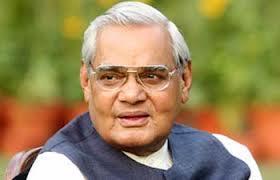
मैं इसे अटलजी की विशिष्ट विलक्षणता मानता हूं कि इतनी उपलब्धियां होने के बावजून मैंने कभी भी उनमें अहंकार या अहं की तनिक भी झलक नहीं पाई। इसलिए सन् 1947 से अब तक के प्रधानमंत्रियों के लेखा-जोखा की बात करते समय मैं कह सकता हूं कि उनका कार्यकाल सबसे ज्यादा उपलब्धियों भरा रहा है।
लालकृष्ण आडवाणी
नई दिल्ली
2 मई, 2013

L.K. Advani's Blog
- L.K. Advani's profile
- 10 followers


